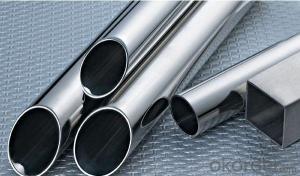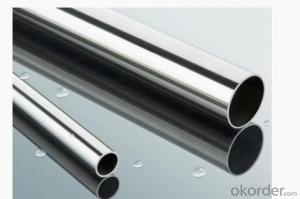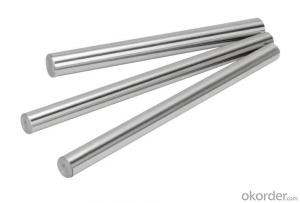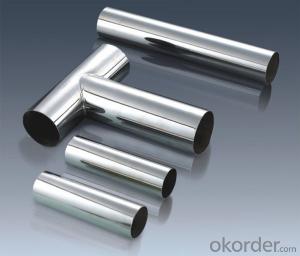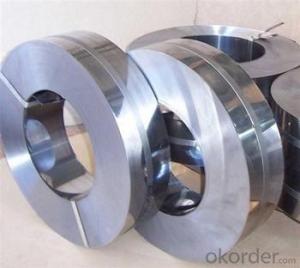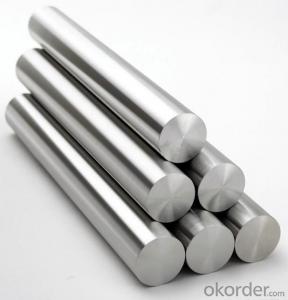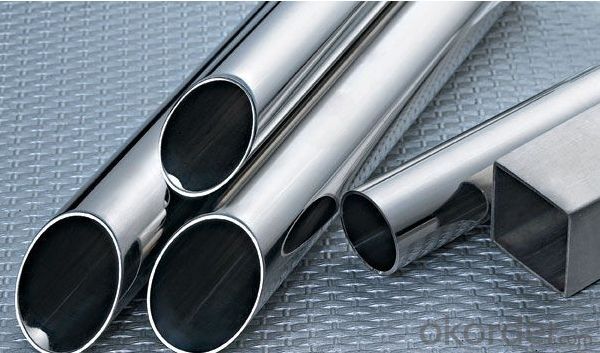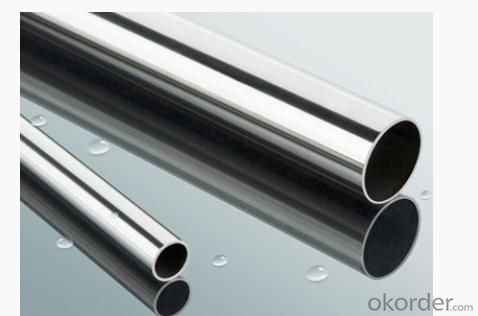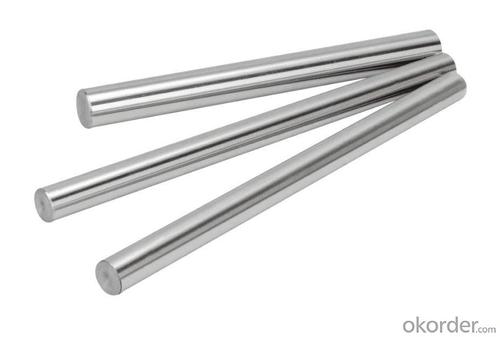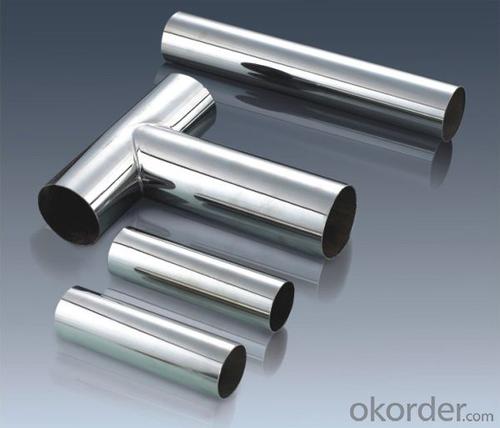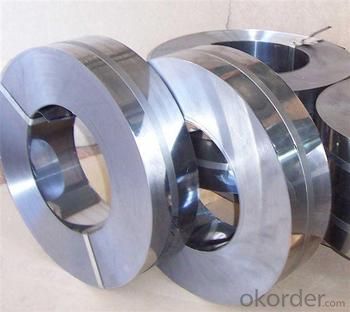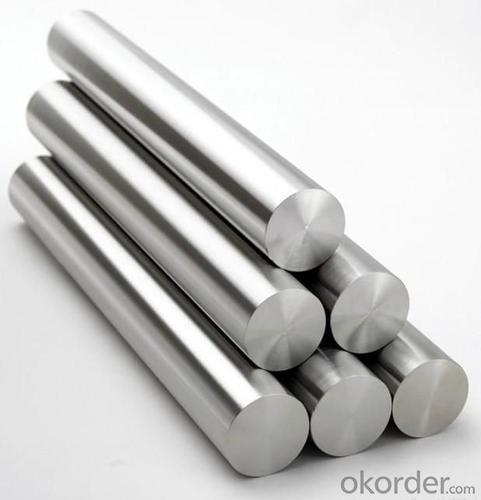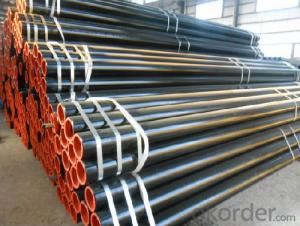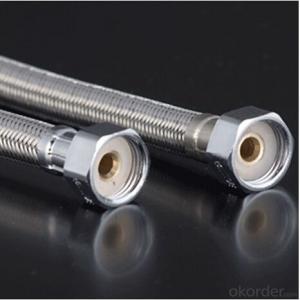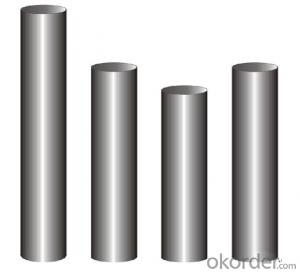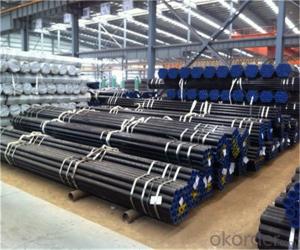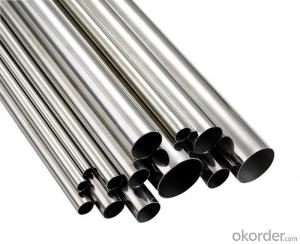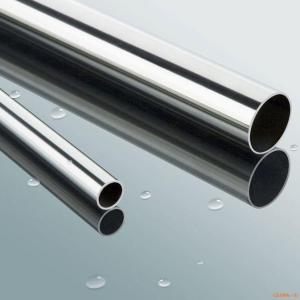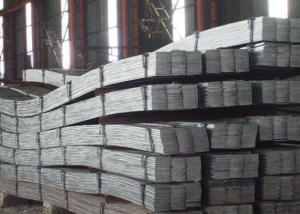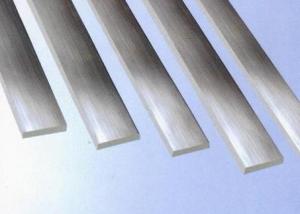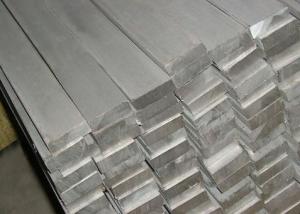Stainless Steel tube 304 with excellent quality
- Loading Port:
- Shanghai
- Payment Terms:
- TT OR LC
- Min Order Qty:
- 1000 m.t
- Supply Capability:
- 1000000 m.t/month
OKorder Service Pledge
OKorder Financial Service
You Might Also Like
Stainless steel 304
Product Information of stainless steel:
- Width: customized
- Surface: 2B/BA/6K/8K/NO.4/HL.
- Thickness: 0.3mm - 3.0mm.
- Delivery time: 15-25 days.
- Length : As customer's requirement.
- Package: With export standard packing or customize packing.
- Payment Terms: T/T (30% deposit pay in advance and the balance before shipment) , irrevocable L/C.
Company advantage:
-Top Equipments, Leading In The Industry.
- Professional Team, Leading Innovation.
- Huge Supply Capacity Advantage, Timely and Effective Delivery.
- Modern Logistic, Fact and Convenient.
- Precise Manufacturing, Exquisite Products.
- Serve People, Create Value.
- Dimensional Network, Powerful Expansion.

- Q: How do you prevent erosion in stainless steel pipes?
- To prevent erosion in stainless steel pipes, several measures can be taken. 1. Proper material selection: Choosing a high-quality grade of stainless steel with good resistance to erosion, such as 316 or duplex stainless steel, can significantly reduce the risk of erosion. 2. Corrosion-resistant coatings: Coating the internal surface of the stainless steel pipes with a corrosion-resistant material can provide an extra layer of protection against erosion. Epoxy coatings, for example, are commonly used to protect against erosion in pipes. 3. Flow control: Managing the flow rate and velocity of the fluid passing through the pipes is crucial in preventing erosion. High flow rates and excessive turbulence can accelerate the erosion process. Implementing flow control devices like flow restrictors or flow baffles can help regulate the fluid velocity, minimizing erosion. 4. Regular maintenance and inspection: Conducting routine inspections to identify any signs of erosion or corrosion is essential. This allows for timely repairs or replacements of affected sections before erosion becomes severe. Additionally, regular cleaning and flushing of the pipes can help remove any sediment or debris that may contribute to erosion. 5. Proper pipe installation: Ensuring that the pipes are properly installed and supported can help prevent damage caused by vibrations or excessive movement. Proper alignment and support can reduce stress on the pipes, minimizing the risk of erosion. 6. Fluid properties: Understanding the properties of the fluid being transported through the stainless steel pipes is important in preventing erosion. For instance, if the fluid contains abrasive particles, implementing filtration systems or using strainers can help remove these particles before they reach the pipes, reducing erosion. 7. Education and training: Providing education and training to personnel involved in the operation and maintenance of the pipes is crucial. This includes training on proper handling, maintenance, and troubleshooting techniques to identify and address erosion-related issues promptly. By implementing these preventive measures, erosion in stainless steel pipes can be effectively minimized, ensuring their longevity and optimal performance.
- Q: What are the categories of stainless steel pipes with acid and alkali resistance?
- Stainless steel is usually classified according to the organization of the matrix, as follows:The ferritic stainless steel (200 and 400) the chromium content in 15%~30%, with a body centered cubic crystal structure. This kind of steel does not contain nickel, sometimes also contain a small amount of Mo, Ti, Nb and other elements, this kind of steel has high heat conductivity, low expansion coefficient, good oxidation resistance and anti stress excellent characteristics of stress corrosion, used formanufacturingthecorrosionresistanceofthe atmosphere, water vapor, waterandoxidizing parts. Ferritic stainless steel prices are relatively low and stable, and has many unique characteristics and advantages, it has been proved that in many of the original that can only use austenitic stainless steel (300) application of ferritic stainless steel is a very excellent substitute materials, ferritic stainless steel containing nickel, the main elements of Cr (>10%) and iron, chromium stainless steel special corrosion resistant elements, its price is relatively stable.. Chromium 12% ~ 30%. Its corrosion resistance and toughness increase with the increase of chromium content, and the weldability is excellent.
- Q: Can stainless steel pipes be used for pulp and paper mills?
- Yes, stainless steel pipes can be used for pulp and paper mills. Stainless steel offers excellent corrosion resistance, high strength, and durability, making it an ideal choice for piping systems in harsh environments like pulp and paper mills. The acidic and corrosive nature of the chemicals used in the paper-making process can lead to the deterioration of conventional pipes, but stainless steel pipes can withstand these conditions without compromising their structural integrity. Additionally, stainless steel pipes are easy to clean and maintain, which is crucial in industries where hygiene is of utmost importance. Therefore, stainless steel pipes are a reliable and long-lasting solution for the piping needs of pulp and paper mills.
- Q: Can stainless steel pipes be used for steam systems?
- Stainless steel pipes are indeed suitable for steam systems due to their remarkable resistance to corrosion and high temperatures. This material is renowned for its ability to carry steam without deteriorating or corroding, thus ensuring the efficiency and safety of the steam system. Moreover, stainless steel pipes possess low thermal conductivity, which aids in reducing heat loss during the transportation of steam. Consequently, these pipes are highly favored in diverse industries for their durability, reliability, and long lifespan.
- Q: Can stainless steel pipes be used for food storage tanks?
- Indeed, food storage tanks can utilize stainless steel pipes. Stainless steel is highly favored as a material for food storage and processing equipment due to its exceptional resistance to corrosion, its long-lasting nature, and its hygienic characteristics. Notably, it remains non-reactive, preventing the release of any hazardous substances into the food, and can endure both high temperatures and strenuous cleaning procedures. Moreover, stainless steel pipes can be effortlessly cleaned and sanitized, thus guaranteeing the adherence to proper food safety standards. Consequently, stainless steel pipes are frequently employed in the construction of food storage tanks to uphold the safety and excellence of the stored food products.
- Q: Can stainless steel pipes be used for high-pressure applications?
- Yes, stainless steel pipes can be used for high-pressure applications. Stainless steel is known for its excellent strength and corrosion resistance, making it suitable for handling high-pressure environments. It can withstand the high pressure without deformation or leakage, ensuring the safety and reliability of the system.
- Q: Can stainless steel pipes be insulated with polyphenylene sulfide?
- Stainless steel pipes, indeed, have the capability to be insulated using polyphenylene sulfide (PPS). PPS, a thermoplastic with remarkable properties of thermal and chemical resistance, can be employed as an insulator in a multitude of applications, such as pipes and tubing. By applying PPS as insulation to stainless steel pipes, the transfer of heat can be minimized and condensation can be effectively prevented. Moreover, PPS exhibits resistance to various chemicals, rendering it apt for utilization in environments prone to corrosion.
- Q: Stainless steel pipe 301 material and 304 material what is the difference?
- 304 is a versatile stainless steel which is widely used in the manufacture of equipment and parts requiring good overall performance (corrosion resistance and formability)
- Q: Can stainless steel pipes be used for power generation?
- Yes, stainless steel pipes can be used for power generation. Stainless steel is widely used in power generation industries, especially in applications such as steam generation and distribution systems, as it offers excellent corrosion resistance, high temperature strength, and durability.
- Q: How do you calculate the weight of stainless steel pipes?
- To calculate the weight of stainless steel pipes, you need to consider a few factors. Firstly, you need to determine the outer diameter (OD) and the thickness (T) of the pipe. Once you have these measurements, you can use the following formula to calculate the weight per foot (or meter) of the stainless steel pipe: Weight per foot (or meter) = (OD - T) * T * 0.0246615 This formula assumes that the stainless steel pipe is of a round shape. The weight per foot can then be multiplied by the length of the pipe in feet (or meters) to calculate the total weight. It is important to note that the density of stainless steel may vary depending on the specific grade and composition. Therefore, the weight calculated using this formula will provide an approximate value. If precise weight calculations are required, it is recommended to consult a reference table or contact the manufacturer for more accurate information.
Send your message to us
Stainless Steel tube 304 with excellent quality
- Loading Port:
- Shanghai
- Payment Terms:
- TT OR LC
- Min Order Qty:
- 1000 m.t
- Supply Capability:
- 1000000 m.t/month
OKorder Service Pledge
OKorder Financial Service
Similar products
Hot products
Hot Searches
Related keywords
